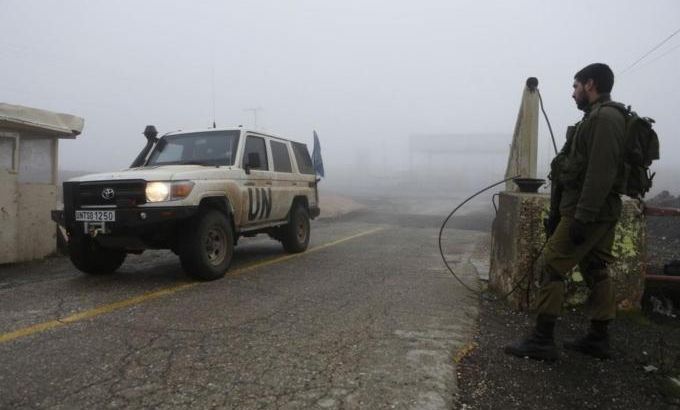
Syrian conflict: Tensions beyond its borders
Following Israel’s airstrikes over Syrian territory, why has Damascus not shown any intention to retaliate?
This week saw a stark reminder that while Syria remains locked in violent conflict within its borders; the country’s place in the region’s delicate balance of power may be just as fiercely contested by its neighbours.
Wednesday’s air strike by Israeli jets over Syrian territory was a surprise to many, but also a confirmation that the tensions beyond its borders remain.
|
“I can only guess that this was [an attack on] a significant target because, by doing so, Israel is taking quite a risk of retaliation and kind of a political risk of escalation in the region. So I believe the Israeli defence authorities wouldn’t decide to attack unless the target looked quite threatening in Israel.” – Alon Liel, former director general of the Israeli ministry of foreign affairs |
Details of the attack remain murky, with Israel maintaining a public silence.
But some US officials said Israel on Wednesday hit a weapons convoy. They said it was transporting SA-17 anti-aircraft missiles to Hezbollah fighters in Lebanon.
The Syrians had their own story – they said the target was a research centre in the Damascus suburb of Jamraya.
Regardless of what Israel’s target was, the government in Damascus has for now shown no sign it intends to retaliate.
The air strike was launched after weeks of growing concern inside Israel. The government considers Syria’s disintegration a security threat.
Israeli officials say they will do whatever it takes to prevent Hezbollah from arming itself with Syrian missiles. And it wants to make sure fighters who consider Israel their enemy do not get their hands on chemical weapons.
It is not the first time that Israel has violated Syrian air space. Back in August 2003, Israeli jets flew low over President Bashar al-Assad holiday home. It was considered a message to Syria to rein in Hezbollah.
Then, in October of that same year, the Israeli air force attacked a training camp for Palestinian fighters near Damascus.
In June 2006, Israeli jets again buzzed one of Assad’s palaces. This time the warning was for Syria to stop supporting Palestinian fighters who had captured Israeli soldier Gilad Shalit.
|
“The former UN special representative on Syria Kofi Annan warned that unlike Libya, Syria wouldn’t implode but would rather explode, and I think we are seeing various external powers preparing for that now …. Everyone has red lines externally. The Iranian red lines are no western attack on Syria and the Israeli red lines may be linked to this attack.” – James Denselow, a Middle East specialist |
And in September 2007, Israeli fighter jets dropped bombs on Syrian territory but refused to discuss the target. Then in April 2008, the US released a video it said showed the bombed out wreckage of a nuclear plant being built with help from North Korea.
Early this week, US President Barack Obama said, in an interview with the New Republic magazine, that he has been struggling with whether military intervention by the US inside Syria would help resolve the conflict or make things worse.
“In a situation like Syria, I have to ask, can we make a difference in that situation? Would a military intervention have an impact? How would it affect our ability to support troops who are still in Afghanistan? What would be the aftermath of our involvement on the ground? Could it trigger even worse violence or the use of chemical weapons?”
The situation on the ground in Syria remains as bleak as ever with refugees fleeing the country every day. Most of them have escaped to camps in neighbouring Iraq Jordan and Lebanon and Turkey.
The United Nations says donors have helped it raise more than its target of $1.5bn to help these people.
This week, Inside Syria discusses the generous international pledges of aid to the ever-growing numbers of Syrians displaced by the internal fighting.
We ask: How far will it go, and how much more might be needed months from now?
To discuss these and other issues, presenter Hazem Sika is joined by guests: Alon Liel, the former director general of the Israeli ministry of foreign affairs, and a lecturer at Tel Aviv university; and James Denselow, a Middle East specialist at Kings College London.